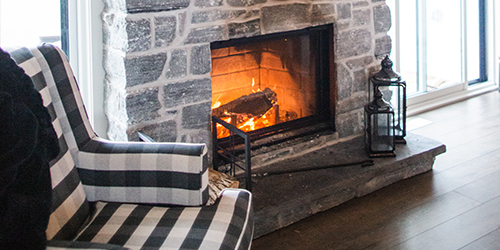During the winter holiday season, there are nearly 47,000 residential structure fires that claim more than 500 lives and cause more than 2,200 injuries and $554 million in property damage. And on average, 40 home fires per day are caused by children playing around the home. These are facts that should be considered when getting your home ready for the holiday season.
Let’s also consider some of the most common myths regarding fire safety during the holidays.
Myth 1: Christmas Trees are the #1 cause of Holiday House Fires
Real or artificial Christmas trees cause 0.12% of house fires according to the National Fire Protection Association (NFPA). And by comparison, these household items are more likely to start a fire:
- Curtains or Drapes (9 times more likely)
- Boxes or Bags (10 times more likely)
- Newspaper & Magazines (13 times more likely)
When buying a real tree, ensure the freshness of the cut tree. A fresh tree contains a lot of moisture and therefore, is extremely difficult to ignite. Christmas trees do not spontaneously combust, and they do not start house fires. Properly maintained Christmas trees are not a fire hazard. You can safely enjoy a real or artificial Christmas tree throughout the holiday season by practicing some basic safety precautions.
Myth 2: Christmas Tree Lights Cause House Fires
Today’s Christmas tree lights come standard with safety fuses in the plugs to help ensure decorators don’t overload the electrical circuits. Christmas lights alone aren’t a fire hazard by themselves. However, you should still avoid overloading electrical sockets and extension cords with too many strands of Christmas tree lights. Here are some other tips to help avoid Christmas tree related fires:
- Turn lights off when you leave your home
- Keep your tree away from fireplaces at least 6 feet
- If you have a real tree, keep it watered so it won’t dry out
- Make sure stockings and presents aren’t too close to candles or fireplace
Myth 3: Holiday Fires Only Occur Due to Christmas Trees, Electrical Issues & Fireplaces/Candles
One of the leaders in holiday fires is from holiday cooking. Cooking fires are the primary cause of home fires and home fire injuries. According to the National Fire Protection Association, each year the deep fryer used for cooking turkeys, causes an average of:
- 1,000 home fires
- 3x the fire damage of other forms of cooking
- 5 deaths, 60 injuries and more than $15 million in property damage
Many other kitchen fires are equally damaging. With the holidays, homes are busy with family and friends and distractions happen, like leaving cooking food unattended and letting children get too close to hot surfaces. Here are a few safety tips:
- Never leave cooking food unattended on the stovetop and watch closing the food cooking in the oven.
- Turn pot handles inward so children can’t grab, and they can’t be bumped.
- Keep cooking areas clean.
- Keep children and pets away from cooking areas.
- Wear close fitting, short or rolled sleeves when cooking to avoid catching on fire.
- For oven fires, turn off heat and keep the door closed.
- If you have a microwave fire, keep door closed and unplug the microwave.
- Never pour water on a grease fire and never discharge a fire extinguisher onto a pan fire, as it can shoot burning grease around the kitchen, thus spreading the fire.
Myth 4: You Have About Five Minutes to Escape a House Fire
Get out immediately once a fire starts! Small flames can turn into a major fire in less than 30 seconds. And in less than 3 minutes, a fire can burn so hot that it ignites everything at once. Many fires that lead to fire damage inside a home can be from hot holiday candles, hot coals inside a fireplace or very hot items such as a turkey fryer. Other causes of indoor fires can be caused by candles that are near other combustible materials such as:
- Oils or potpourri
- Decorative tissue paper
- Holiday decorations or wooden toys
Myth 5: A Smoke Detector Can Provide Enough Protection During a House Fire
Smoke detectors save lives by providing an early warning of fire or smoke, but it cannot extinguish a growing fire. An often times, the battery-operated smoke detectors fail to work because the batteries are dead or have been removed. Homes need more than just functioning smoke detectors. Families need fire extinguishers, an escape plan, and in some circumstances even a sprinkler system.
The holiday season is a time of the year for celebration and spending time with family and friends. So don’t let fear consume you by worrying about fire damage or destruction of you home. Implement a fire safety plan during the holidays to help protect you and your family.

